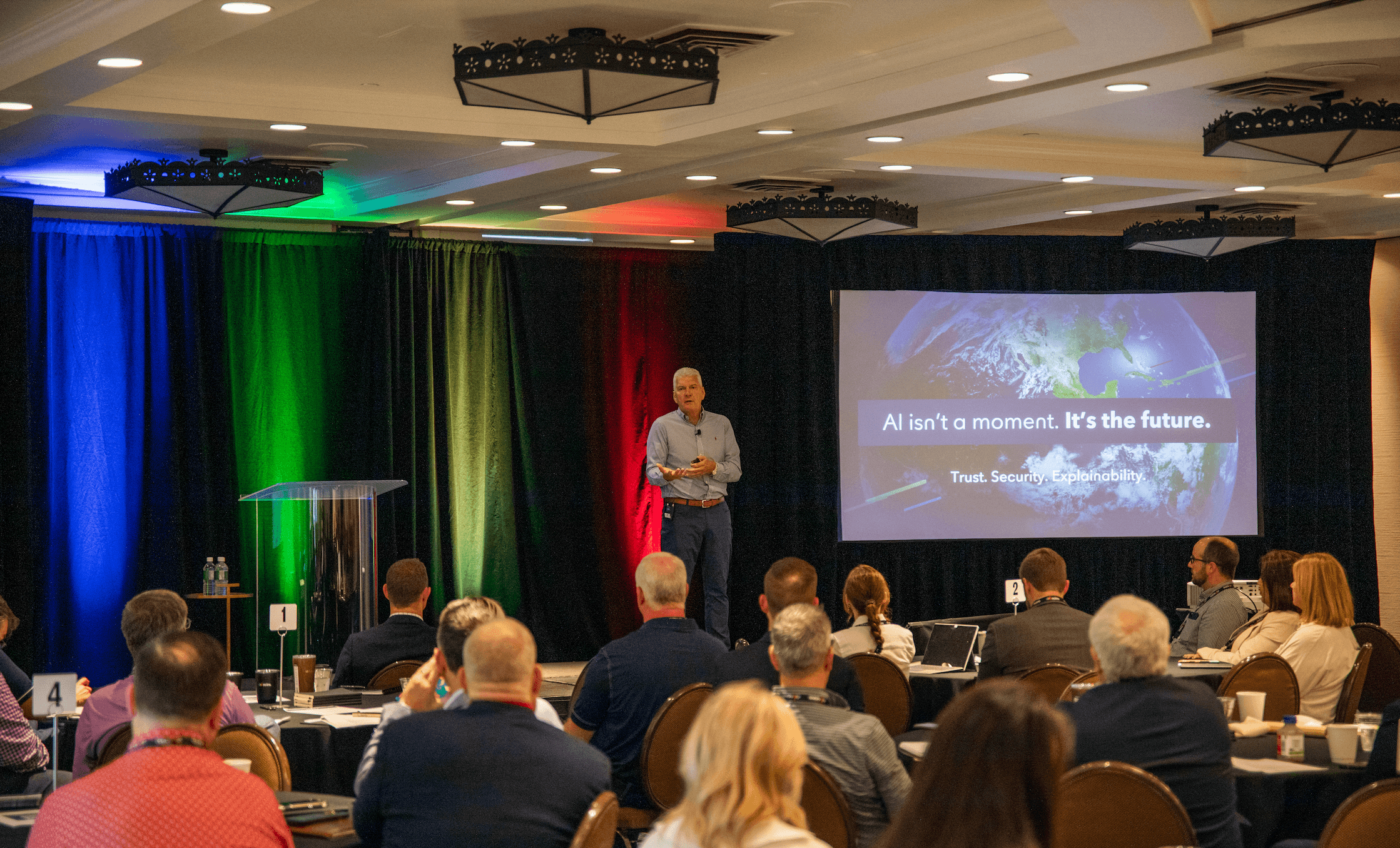The Future of Lending is Human
New technologies have had—and will continue to have—a great impact on banking. As a result, many financial institutions (FIs) are investing in their digital capabilities, seeing it as a necessary trade-off between human touch and technology. These two things aren’t mutually exclusive, however. At the London Innovation Tour, nCino experts presented our view on how FIs can and must combine both to deliver a superior customer and employee experience.
To accomplish this balance, FIs must relentlessly focus on the needs of their customers and the problems they’re looking to solve. At nCino, we don’t write a single line of code until every team member working on our product can answer the following question: “What are the key problems we are trying to solve with this feature?” By doing so, we’ve found three things FIs need to focus on to be successful in today’s changing landscape:
Digital: Today’s customers are looking for convenience, integrated experiences and opportunities to simplify every aspect of their lives—including their financial lives. Automation enables fast and seamless workflows and low-touch interactions, replacing time consuming, manual processes and allowing bankers more time to better serve their customers.
Personalised: The digital world can be brought to life through continuous personalisation. This can help build brand loyalty and create opportunities for better engagement. Banks need to understand their customers’ needs and respond accordingly with appropriate new services and channels. In doing so, all channels – especially digital ones – should be tailored to the individual client.
Sustainable: Analysis from McKinsey & Co (2022) estimates that investment in new infrastructure and systems needed to meet international climate goals must reach $9.2 trillion a year annually until 2050. Banks are under rising regulatory and commercial pressure to align with the global sustainability agenda. As regulatory demand on banks increases, many investors, responding to their clients’ shifting attitudes, are already considering environmental, sustainability and governance (ESG) factors in their investment decisions and are channelling funds to “green” companies. With regulation continuing to develop, lenders need to get ahead of the ESG curve as the market evolves and technology like nCino can help achieve those goals.
This is all manifesting in product innovation. At the event we highlighted the following features:
Automated Income Assessments
Automating income verification seems simple. Most of us get paid the same amount weekly, fortnightly or monthly. Quantifying this straightforwardly, however, is not what we see in the real world.
Income can be messy. There might be multiple income sources, it may not be received at regular intervals and the amounts can vary considerably over time. That’s why nCino automates income and expenditure verification via Open Banking for faster, more accurate affordability decisions.
Commercial Pricing and Profitability
Gone are the days where pricing is trapped in complicated excel workbooks or calculated in a disparate system during loan origination. nCino’s on-platform Commercial Pricing and Profitability solution allows FIs to analyse portfolios, set strategic direction and execute pricing policies all within a single solution. FIs can also price and calculate commercial loan and relationship profitability within a single platform, based on policies and financial targets individualised to your institution.
Next Generation, Conditions and Covenants
nCino’s Covenants Solution provides an intuitive, guided and automated experience for conditions, covenants and documents to help users seamlessly manage their customers and deals.
Navigating a Complex ESG Landscape to Future-proof Your Business
A key priority for lenders is how to embed ESG criteria and risk practices into their existing lending process while remaining compliant without slowing down time to market. Technology leaders need to handle the increased amount of data and integrate that into the existing workflow while standardising and automating ESG data collection from different sources.
Our commitment to innovation shows in our track record of regularly enhancing existing capabilities and delivering new solutions. We are deeply proud of our reputation as a company that partners with our customers to understand their needs and work together to address them.
That’s one of the reasons nCino has prioritised the development of an ESG solution that integrates sustainability management capabilities alongside nCino’s lending solutions. This will allow financial institutions to track and evaluate ESG at the customer, loan and collateral level, house and leverage ESG data from external providers in a single place, create ESG assessments, and generate insights and reports on-demand. nCino’s ESG solution is predicated on solving the current and evolving needs for financial institutions by embedding ESG processes and policies within a highly configurable, single platform – ensuring speed, transparency and importantly, regulatory compliance.
nCino’s ESG solution will provide FIs with the tools to adapt, such as:
A flexible data model and configurable platform tools for gathering climate and other ESG risk data during the application process
A collateral management system that can capture and track ESG data at the collateral level
A covenant management system that can create and track ESG-specific covenants for specific loan purposes or assets
And the ability to imbed ESG practices into your existing lending workflows without the need for significant retraining
Lessons in innovation can come from many sources. One of the highlights of our London Innovation Tour was a talk by Cathy O’Dowd, the first woman to reach the summit of Mount Everest from both the south and the north sides. FIs can learn a lot from the mountaineers like Cathy. Her success would not be possible without agility, innovation and partnership. According to Cathy, fear is OK; it’s complacency that will kill.
To survive, FIs must take their inspiration from people like Cathy, and innovate to adapt to shifting circumstances and expectations. Now more than ever, FIs sit in the drivers’ seat of the global economy. They are at the place where our global economic system meets the human scale of our communities. We all share a future. Successful investment in our communities should mean that we invest in ways that improve and prolong that future for everyone, and we look forward to working with FIs around the globe to make that future possible.




